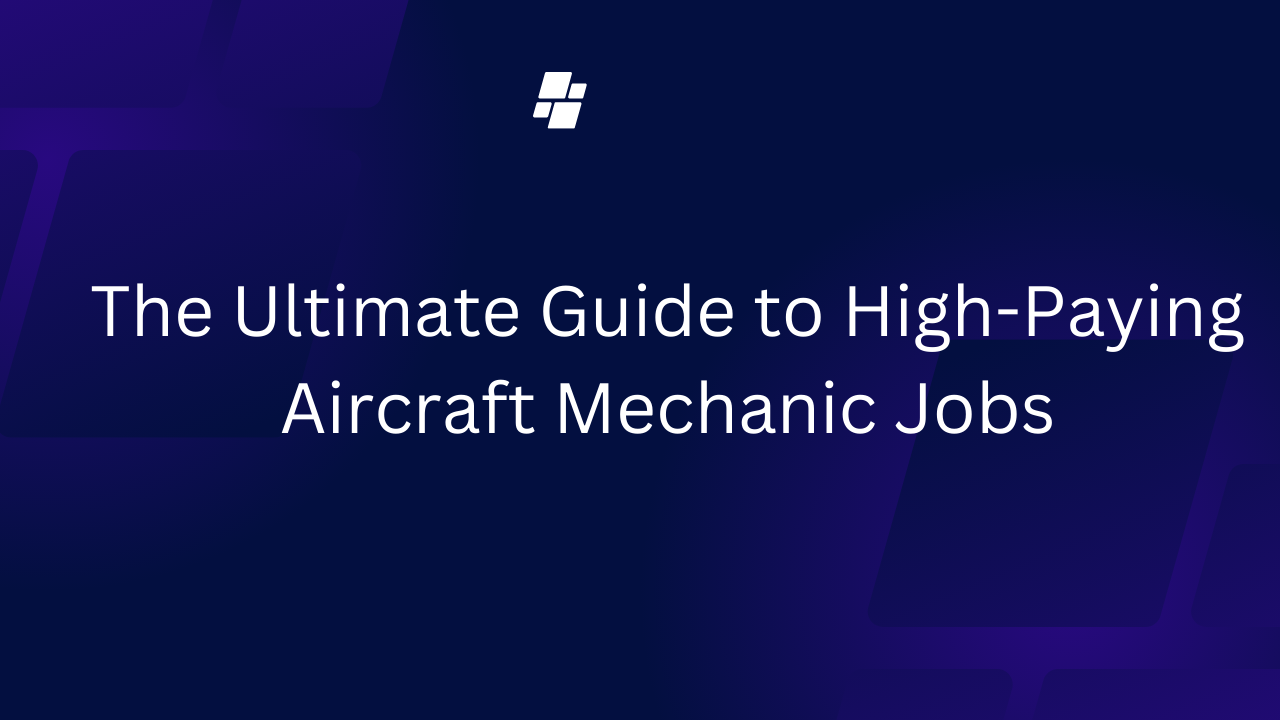Aircraft mechanics are integral to the aviation industry, ensuring the safety and functionality of airplanes. For those with a passion for aviation and mechanical skills, this career path not only offers job security but also the potential to earn high salaries, especially in specialized roles or top-paying sectors.
In this comprehensive guide, we’ll explore the highest-paying opportunities for aircraft mechanics, key certifications, and strategies to maximize your earning potential in this dynamic field.
Top Salaries for Aircraft Mechanic Jobs
According to the U.S. Bureau of Labor Statistics (BLS), the average annual salary for aircraft mechanics and service technicians was $65,640 as of May 2023. However, specialized roles and certain industries offer significantly higher earnings. Here are the top tiers:
1. Commercial Aircraft Mechanics
- What They Do: Maintain and repair large commercial airplanes for major airlines.
- Salary Range: Experienced mechanics at leading airlines like Delta, United, or American Airlines can earn $80,000–$120,000 annually, with overtime pushing earnings higher.
2. Military Aircraft Mechanics
- What They Do: Service military planes, helicopters, and related equipment.
- Salary Range: A master sergeant aircraft mechanic in the U.S. Air Force earns a base salary of approximately $60,000 annually, plus housing allowances, bonuses, and other benefits.
3. Executive/Private Jet Mechanics
- What They Do: Service private and corporate luxury jets.
- Salary Range: Salaries typically fall between $80,000 and $120,000, with higher pay depending on employer and location.
4. Overseas Contract Mechanics
Key Certifications and Training for High-Paying Roles
The aviation industry demands stringent certifications to ensure safety and compliance. Investing in these credentials can significantly enhance earning potential:
1. Airframe & Powerplant (A&P) Certificate
- What It Is: The foundational FAA certification required for most aircraft mechanic roles.
- Why It Matters: Allows mechanics to inspect, maintain, and repair aircraft legally in the U.S.
2. Type Ratings
- What It Is: Specialized training on specific aircraft models, such as the Boeing 737 or Airbus A320.
- Why It Matters: Demonstrates expertise in maintaining high-demand fleets, making mechanics indispensable to airlines.
3. Military Training
- What It Is: Aircraft maintenance training obtained through military programs like the U.S. Air Force’s aircraft maintenance apprenticeship.
- Why It Matters: Offers transferable skills for high-paying contractor roles or defense industry positions.
4. Advanced Certifications
- Examples: Certifications in avionics, composite materials, or hydraulics.
- Why It Matters: Equips mechanics with niche skills that command premium wages.
5. Degree Programs
- What It Is: Associate or bachelor’s degrees in aircraft maintenance engineering.
- Why It Matters: Opens doors to management roles and higher-paying positions.
Gaining Experience with Major Employers
Building experience with top-tier aviation companies is critical for career advancement and higher pay. Here’s how to position yourself:
1. Join Airline Trainee Programs
- Major airlines like Delta and American Airlines run programs to train and onboard new talent.
2. Work for Regional Airlines
- Gain hands-on experience with regional carriers such as SkyWest or Republic Airways. These positions often lead to internal transfers to major airlines.
3. Apply to Corporate Jet Operators
- Companies like NetJets and Signature Flight Support hire mechanics for luxury aircraft maintenance.
4. Fixed-Base Operators (FBOs)
- Start with FBOs at busy airports to build a network and transition to larger operations.
Explore Specialized Niches
Certain niches within the aviation industry offer unique challenges and higher pay:
1. Offshore Oil and Gas
- What It Involves: Maintaining helicopters and aircraft that service offshore oil rigs.
- Why It Pays Well: Remote locations and high-stakes operations drive compensation to $90,000–$150,000 annually.
2. Experimental Aircraft
- What It Involves: Working on custom-built or prototype planes.
- Why It Pays Well: Requires specialized knowledge and creativity, with pay ranging from $70,000–$100,000.
3. Military Contractor Roles
- What It Involves: Supporting active operations globally, often for companies like Lockheed Martin or Raytheon.
- Why It Pays Well: Salaries exceed $100,000, with substantial bonuses.
Geographic Considerations for Aircraft Mechanic Pay
Location plays a significant role in determining salaries. High-paying regions include:
1. Major Commercial Hubs
- Examples: New York, Los Angeles, Miami, Atlanta.
- Why It Pays Well: High demand for mechanics to support major airline operations.
2. Defense Industry Centers
- Examples: Washington D.C., Dallas-Fort Worth, Seattle.
- Why It Pays Well: Proximity to military bases and defense contractors increases demand.
3. International Aviation Markets
- Examples: Dubai, Singapore, Hong Kong.
- Why It Pays Well: High hourly wages and relocation incentives make these locations lucrative.
Continuous Learning: Stay Ahead in the Industry
Aviation technology evolves rapidly, and staying current is vital for career longevity and salary growth:
- Attend Training Seminars: Participate in FAA and industry conferences.
- Pursue Additional Certifications: Update type ratings or explore cross-training in avionics.
- Enroll in Degree Programs: Earn advanced qualifications for managerial roles.
- Volunteer on Experimental Aircraft: Gain experience with cutting-edge technology.
Continuous learning ensures mechanics remain competitive and open to high-paying opportunities.
Salary Progression for Aircraft Mechanics
Here’s a typical salary trajectory based on experience and specialization:
| Experience Level | Salary Range | Description |
|---|---|---|
| Entry Level (0–2 Years) | $40,000–$55,000 | General maintenance roles with basic certifications. |
| Mid-Level (3–7 Years) | $60,000–$80,000 | Increased responsibilities, certifications, and specialization. |
| Experienced (8–15 Years) | $85,000–$120,000 | Advanced expertise, type ratings, and supervisory roles. |
| Top Tier (15+ Years) | $120,000–$200,000+ | Specialized roles, overseas contracts, or management positions. |
Final Thoughts: Building a High-Paying Career
Aircraft mechanics enjoy a stable and rewarding career with opportunities to earn six-figure salaries. By pursuing certifications, gaining experience with major operators, exploring specialized niches, and staying committed to continuous learning, you can unlock your full earning potential.
With the right strategy, passion for aviation, and dedication to professional growth, a career in aircraft maintenance can be both financially and personally fulfilling.
